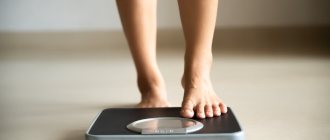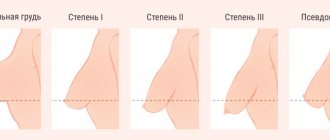When you're trying to lose weight, the best indicators of your progress are volume, body part circumference in centimeters, and the number on the scale. Often these indicators increase and decrease together, but there are also cases in which either the volumes decrease, but the weight does not move, or the weight goes away, but the volumes do not, why? The second problem may have several causes.
How often does the problem occur?
It should be noted that the problem of weight and volume imbalance is quite common. It happens that a person goes on a diet and exercises and seems to be doing everything right. But his volumes are disappearing, but his weight remains the same. And it happens the other way around. He is losing weight, but his measurements remain the same. This situation can last for days and even weeks.
In such cases, even a low-calorie diet does not help, because this is not the root of the problem. Many of the sites you may search for an answer to your problem will not provide objective advice, but we will try to talk about the root of the problem and how to fix it. If you are wondering how it happens that the weight goes away but the volume does not, why this happens, read this article.
There may be several reasons for such a problem, and we will give the five main ones below.
Probable reason: too much muscle mass
You should know that every person has a lot more muscle mass in their body than you might think. And according to the results of many studies, when training, muscle can also be burned, not just fat. In some cases, the body prefers to part with muscle first, while fat remains untouched - you have not yet waited for the moment when fat begins to disappear during a diet. And so you will notice that the weight has decreased, but the girth has remained unchanged. You know that muscle mass is heavier than fat mass.
Simply put, if your body has high muscle mass, then you will either have to give up muscle so that your body starts burning fat, or switch to a high-protein diet. Then you will notice that the volume begins to decrease.
It should be noted that if you want to lose weight and size quickly, you need to have a lot of muscle. Muscles consume a lot of energy even at rest, and during training they work at an accelerated rate and burn even more. Therefore, from a weight loss perspective, muscle is very beneficial. That is why it is recommended to exercise and supplement your diet with quality protein. Then the muscles will grow and the fat will go away, and as a result you will get the opposite situation - the volume goes away, but the weight stays. But it’s more profitable to have minus one or two sizes in clothes, and don’t care about the kilograms.
Why does weight increase after exercise?
After one session, there is usually no significant weight gain. “After one workout, weight cannot increase - unless, of course, you overeat and drink a lot of water,” explains Leonid Zasedatelev, a specialist in rehabilitation and posture correction .
“But after a series of training this can happen.” Why does this happen? Here are the main reasons.
Edema
There is no need to panic: in the initial stages of a “fitness career,” weight gain after exercise is normal. “In simple terms, the beginner’s muscles have received a load and thus adapt to it,” says Maxim Oborin , X - network of fitness clubs in Russia. — Biochemical reactions that occur in solutions actively occur in muscle cells. Therefore, an additional amount of water is attracted to them and remains there for some time (not very long). Hence the weight gain."
Roughly the same thing happens to experienced athletes during their first training sessions after a long break from training. Certain types of fitness can cause the greatest weight gain. “Weight will increase more often after weight training and from movements performed at a fast pace. For example, if you decide to ignore the gym and go to a group class, say step aerobics, your muscles will initially become fuller and firmer. At first they will attract a little more liquid and nutrients. Then this process slows down and normalizes,” says Maxim Oborin.
Muscle gain
If you regularly train with weights, your muscles become toned, which is reflected on the scale. “Muscle is almost one and a half times denser than fat! That is why a change in weight in kilograms due to fat or muscle will look different,” comments Maxim Oborin. “This confuses many newbies. For example, a person outwardly notices that he has lost weight, and the readings on the scale are the same as they were, or even a little more. This is demotivating for some. Fat and excess fluid go away, muscles fill up a little - and all this with the same numbers on the scales.”
Therefore, trainers recommend focusing not on the numbers on the scales, but on changes in body volume - waist circumference, hips, biceps, etc.
Stress
Nervous tension can also lead to weight gain during exercise. “If a person, with a busy work schedule, violates his diet and sleep patterns, the body does not receive proper recovery and is in a state of stress and exhaustion. By training in this state, a person overloads his body even more, as a result of which the weight “stands up” or even creeps up,” says Leonid Zasedatelev.
Wrong diet
As you know, 80% of the success of the process of losing weight (or gaining weight) is ensured by properly organized nutrition and only 20% by training. “Due to irregular diets or lack of a balanced diet, even with intense training, not only muscles, but also fat will grow,” says Leonid Zasedatelev. “By the way, undernutrition is no less harmful than overeating: it slows down the rate of weight loss.”
Hidden strategic reserve
Fat can burn in places where you forget to measure. For example, you may only measure at the waist, where it is not yet burning, but if you were to measure on your arms, you would notice that you are losing volume. It just burns out in other parts of the body.
Fat in the body is stored in different places, and it is not evenly distributed everywhere. It also burns unevenly, and in some places it will burn off first. This, for example, applies to the face and sternum, that is, the mammary glands. It's impossible to measure your face. And in some women, the mammary glands consist almost exclusively of fat and lose volume. This, by the way, is the most negative part of losing weight, according to girls’ reviews. Volume is the first to go from where it is not needed, but on the contrary, I would like to add it there.
At the same time, other places will remain the same, and if you only measure in these places, you may feel like you're not moving anywhere. But that's not true. If you start measuring both your arms and your hips, you will notice that their volume has decreased, while your waist has remained the same.
Sometimes the volume can go away from places where it is difficult to measure the girth, for example, from the neck. In this case, you just need to be patient, and if your weight continues to decrease, you can expect the volume to go away soon. When do diet volumes start to go away? It depends on your body fat percentage. The more of it, the faster it goes away, and the less of it, the slower. The body values its reserves.
Over time, when most of the fat comes off, the body will begin to take hold of the waist, and then its girth will also begin to decrease.
So if you only measured your waist or stomach, you should start recording measurements of your arms and legs as well.
Lack of physical activity
This is another common reason for losing weight while maintaining constant centimeter measurements. When you diet, you reduce the number of calories available to your body. In this case, the body will decide that it should treat fat with care, because a “rainy day” has arrived. Then it will start burning muscle instead of fat. Since muscle weighs more than fat for less volume, you will notice that you weigh less, but your girth remains the same. Losing muscle instead of fat is another possible reason why volumes do not go away when losing weight.
This way, if you don't exercise, you won't let your body know that muscle is still needed. But if you play sports, the muscles will receive stimulation and will not be consumed by the body. But fat will burn even faster, because it will be consumed by active muscles.
Remember that if you want to retain muscle, you will have to add a lot of protein to your diet.
The volume is gone, but the weight remains: what to do?
If the volume is gone, but the weight remains, then you should give your body a shock situation - allow yourself a conscious gastronomic breakdown, radically change the intensity of physical activity. But if these measures do not give a positive result within 1-2 weeks, then you will need to analyze your own lifestyle.
Full sleep
With insufficient sleep, the body compensates for rest with food - uncontrolled weight gain occurs. At the same time, hormonal levels are disrupted - a large amount of cortisone is produced and the level of serotonin decreases: the “hormone of joy”, the lack of which is compensated by fast carbohydrates.
An adult should sleep at least 7 hours a day. And not in fits and starts with the addition of daytime rest, but fully at night.
Fractional meals
Nutritionists recommend eating food in small portions and every 3 hours. The menu should consist of a variety of fruits and vegetables, proteins and “healthy” carbohydrates. Fasting is strictly prohibited, because if the amount of calories incoming is too small, the body begins to spend energy sparingly - weight loss is guaranteed.
Drinking enough water
Water actively removes waste and toxins from the body, cleanses the genitourinary system and intestines, and satisfies false hunger. The debate about how much water a person needs per day has been going on for a long time; there is still no consensus. But those losing weight should drink at least one and a half liters per day, and if they actively engage in sports, then the volume increases by 2 times.
Only water left
Your weight loss with unchanged body girth may be a consequence of dieting. Have you eliminated salty foods from your diet? If so, then your body loses excess water, but the measurements do not change.
If you consume salt in large quantities, the body stores it in the body, with the kidneys dissolving the salt in water to store it. This increases weight. It’s even hard to imagine how much water is lost when losing weight in the first days. The losses will be especially large if you loved salty foods and consumed a lot of carbohydrates.
If you previously ate a lot of food high in salt (most often these are unhealthy types of food, such as fast food and processed foods), then your body will get rid of salt in the first days of the diet, and with it it will also remove the water in which this salt was dissolved. salt.
Any correct diet prescribes the removal of salty foods from the body. In the absence of salt in the diet, the kidneys will get rid of its excess in the blood and tissues. It is the loss of salt and water in which it is dissolved that is responsible for the loss of the first 2-3 kilograms. And this loss will not affect your measurements in any way.
Excess water in the body
Why does water retention occur in the body? The reason lies in nutrition, namely in the amount of salt consumed.
It is necessary for the body for the hematopoietic process. It has no calories. But it has the ability to retain water in the body. Excess water in the body causes swelling, hence volume. By reducing your salt intake and increasing your consumption of clean water, you can get rid of excess fat. In addition, drinking alcohol and sweets also provokes fluid accumulation in the body.
The beginning of the way
Any person starting a diet or starting a workout expects great results, and believes that he must see them in the first days. You should understand that in order to see the benefits of the diet, you should stay on it for at least a week. Most people who are losing weight have no idea how many days after the diet the fat begins to disappear, and expect to see the effect immediately.
The study showed that in order to lose two centimeters in girth, you need to lose up to 3 kg of weight. At the same time, weight is stored in the liver, and you will lose the first four kilograms in the form of glycogen, which also will not affect the girth. Glycogen, a type of sugar stored in the liver, is burned down to subcutaneous fat, and there can be a lot of it, and when it is burned, weight is lost, but volume is not. Therefore, you should supplement the diet with training - then the body will quickly deal with glycogen reserves and will not consume muscles as a source of energy.
There is also the opposite problem, when everything is the other way around. Then the girls ask why, when losing weight, the weight stays the same, but the volume goes away. There are also rational explanations for this. Here are some reasons:
- Routine, monotonous diet. Even if it is correct and healthy. But this is how the body reacts to the same foods. Same caloric intake. Using a cheat meal is the way out of the situation. What is the power of cheat mil? It allows you to avoid being stuck on a diet psychologically. By allowing yourself to indulge in junk food once a week, you can avoid going into depression and give your body a hint that a rainy day has not arrived. And he will relax and begin to lose weight.
- Same muscles again. Their volume has become larger and they are heavier. The body is more prominent, but the weight does not go away. This is beneficial when there is a lot of muscle. Everything is written about them above.
- Too many calories. If you have problems with mathematics, that is, with counting calories, or your willpower is a little weak, then going overboard with calories can also be the reason why your volume goes away, but your weight stays.
IMPORTANT! Informational article! Before use, you should consult a specialist.











